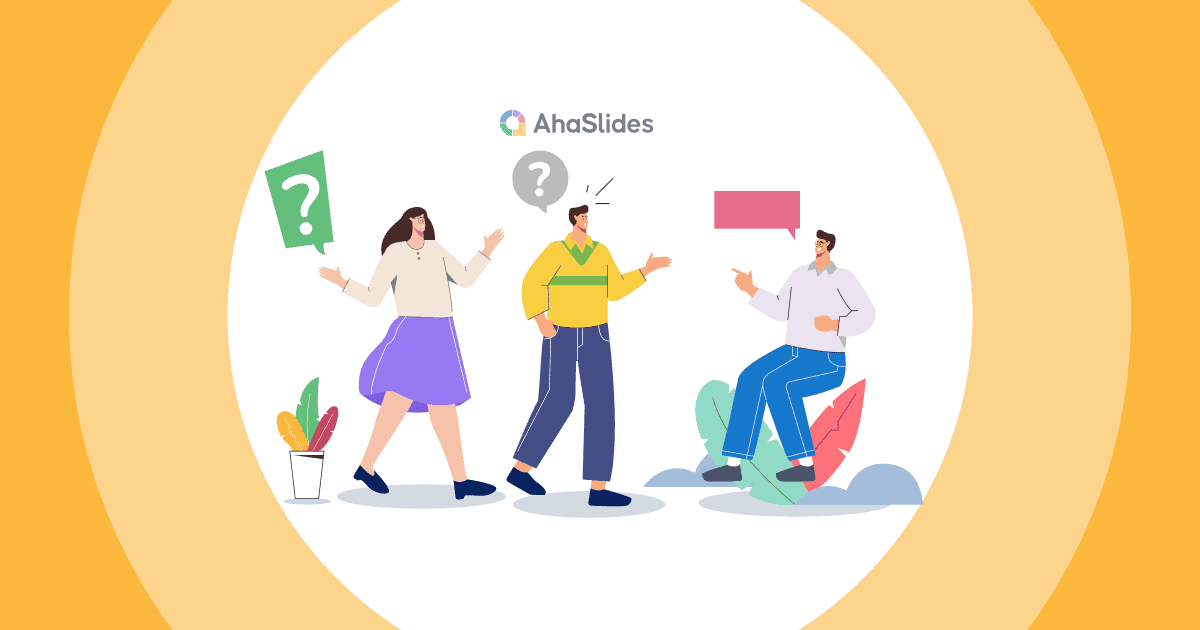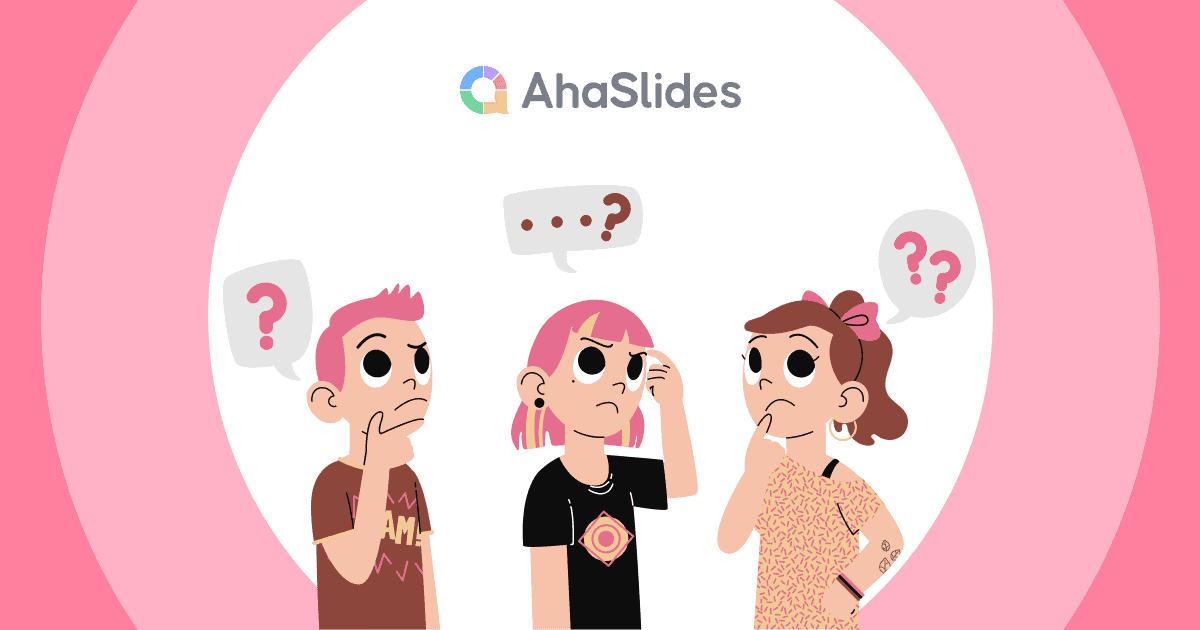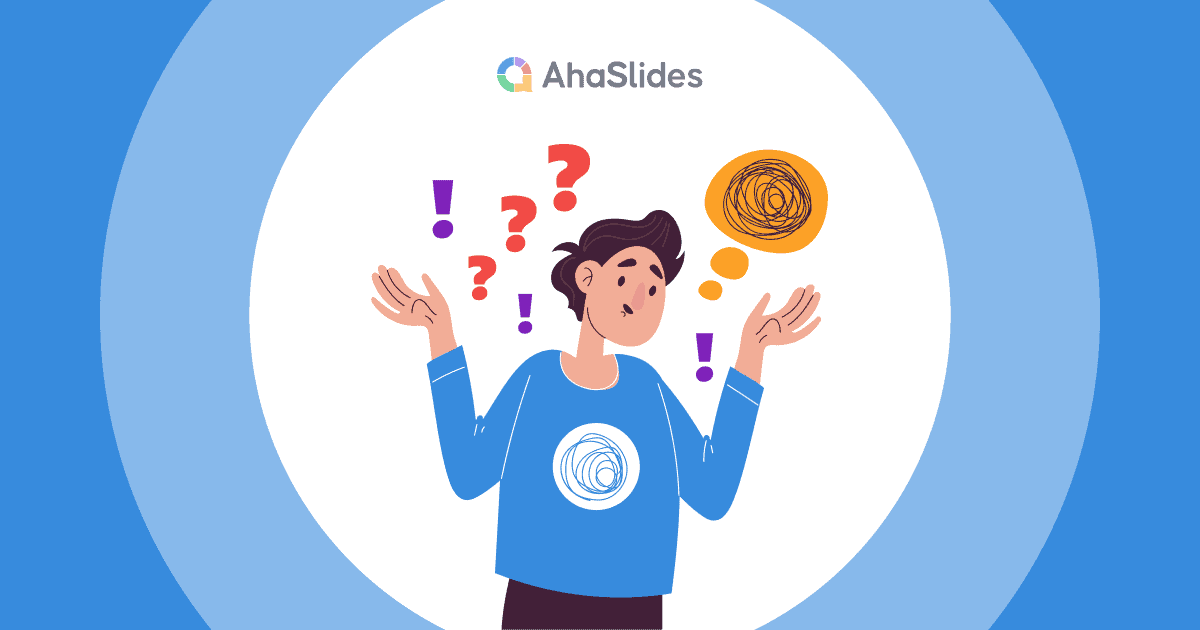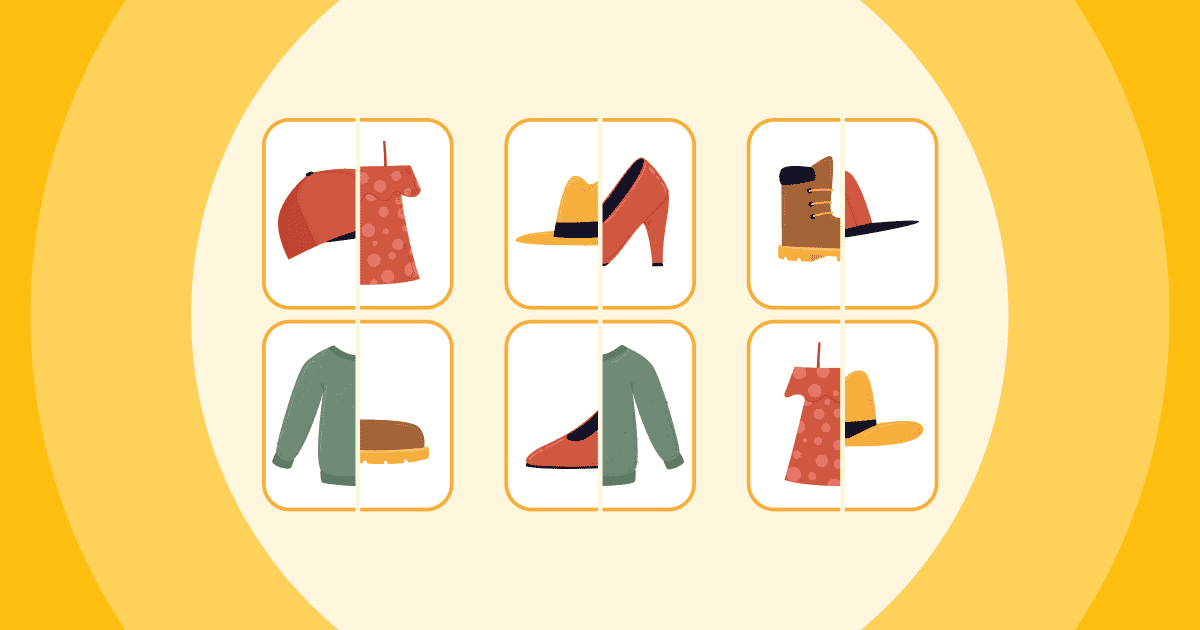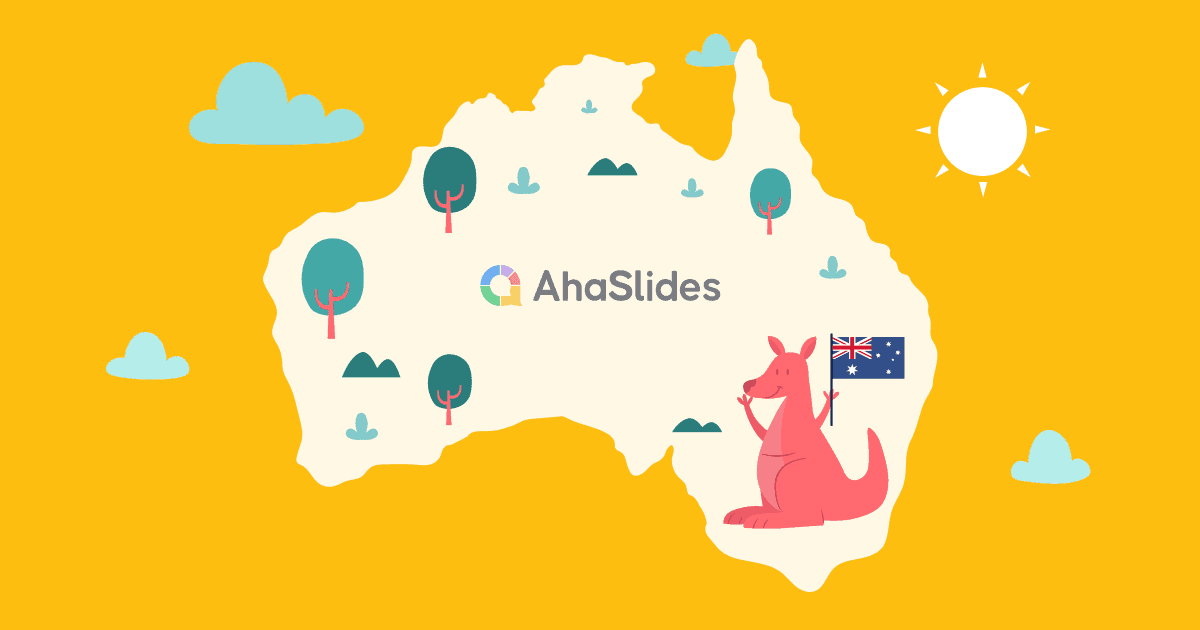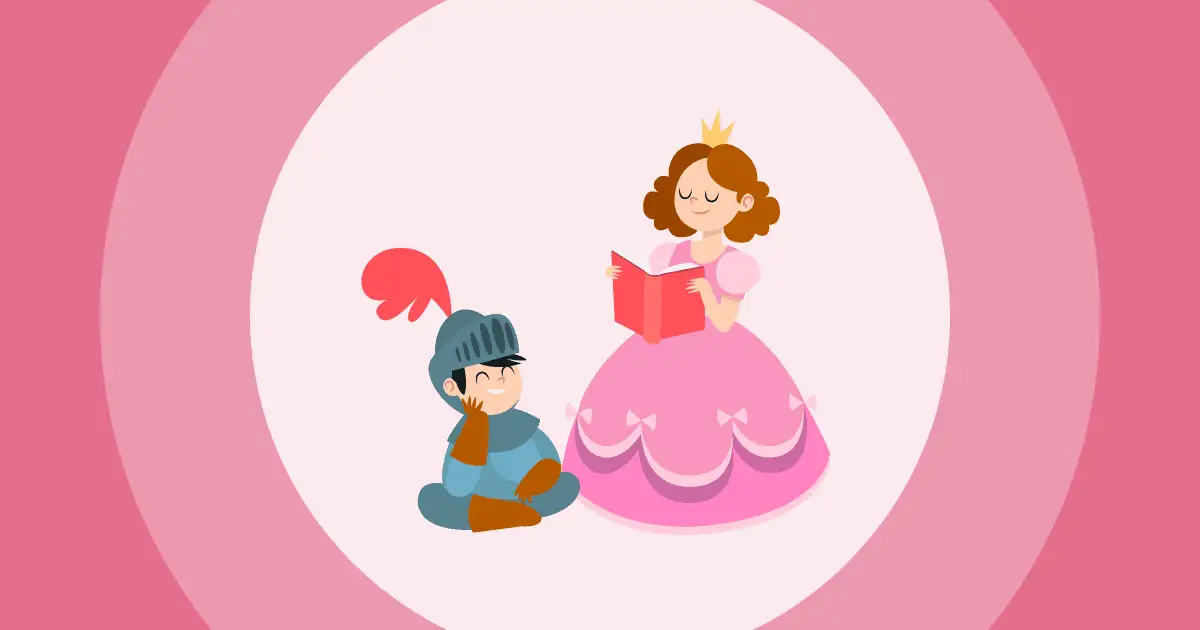What are the difficulties you meet while designing the survey? You might want to check out the following closed-ended questions examples in today's article to help you have a better understanding of how to design a survey and questionnaires efficiently.

Table of Contents
- What are Close ended questions?
- Differences between Open-ended and Close-ended questions
- Types of Close Ended Questions Examples
- #1 - Dichotomous questions - Close ended Questions Examples
- #2 - Multiple choice - Close ended questions examples
- #3 - Checkbox - Close ended questions examples
- #4 - Likert scale - Close ended questions examples
- #5 - Numerical Rating Scale - Close ended questions examples
- #6 - Semantic differential questions - Close ended questions examples
- #7 - Ranking questions - Close ended questions examples
- More Close Ended Questions Examples
- Key takeaways
What are Close Ended Questions?
One of the most popular types of questions in a questionnaire is closed-ended questions, where respondents can pick answers from a specific set of responses or a limited set of options. This type is commonly used in both research and assessment contexts.
Differences between Open-ended and Close Ended Questions
| Open-ended questions | Closed-ended questions | |
| Definition | Allow the respondent to answer freely and in their own words, without being constrained by a predetermined set of answer options. | Provide a limited set of answer options that the respondent must choose from. |
| Research method | Qualitative data | Quantitative data |
| Data analysis | Require more effort and time to analyze, as the responses are often unique and varied. | Are easier to analyze, as the responses are more standardized and can be easily quantified. |
| Research context | When the researcher wants to gather detailed and nuanced information, explore new ideas, or understand the respondent's perspectives. | When the researcher wants to collect data quickly and efficiently, compare responses across a large sample, or limit the variability of responses. |
| Respondent bias | May be more prone to respondent bias, as the answers can be influenced by the respondent's writing or speaking skills, as well as their willingness to share personal information | Can be designed to minimize respondent bias, as the answer options can be carefully crafted to ensure accuracy and consistency |
| Examples | What are your thoughts on the new company policy? | To what extent do you agree to the new policy the company enacted in July? |
Type of Close ended Questions Examples
A well-designed survey can include different types of closed-ended questions to address various aspects of the research topic. Plus, the questions should be designed to elicit specific and measurable responses from participants and be tailored to the research method.
Understanding the different types of questions is crucial for both amateurs and professionals alike. This knowledge can help researchers design the appropriate questions for their study and accurately analyze the data collected.
Here are the 7 common types of Close ended questions and their examples:
#1 - Dichotomous questions
Dichotomous questions come with two possible answer options: Yes/No, True/False, or Fair/Unfair, which are useful for collecting binary data to ask about qualities, experiences, or respondents' opinions.
Examples:
- Did you attend the event? Yes/No
- Are you satisfied with the product? Yes/No
- Have you ever visited our website? Yes/No
- The capital of France is Paris. A. True B. False
- Do you think it is fair for CEOs to earn hundreds of times more than their employees? A. Fair B. Unfair
#2 - Multiple choice
Multiple choice is the most popularly used as one of the close ended questions in a survey. It usually comes with multiple possible answer options.
Examples:
- How often do you use our product? (options: daily, weekly, monthly, rarely, never)
- Which of the following high-end fashion brands do you prefer? (options: A. Dior, B. Fendi, C. Chanel, D. LVMH)
- Which of the following is the longest river in the world? a. Amazon River b. Nile River c. Mississippi River d. Yangtze River
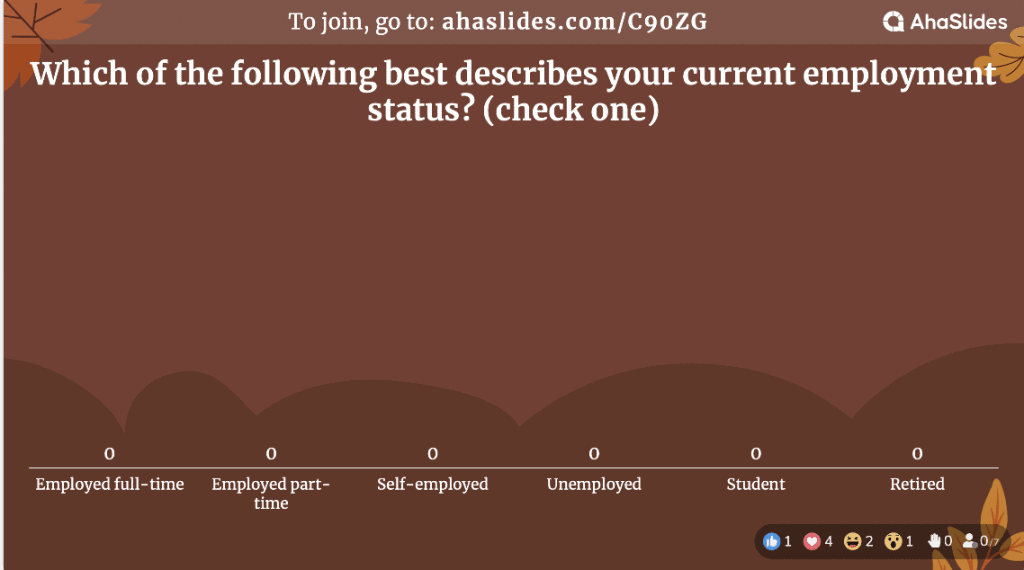
#3 - Checkbox - Close ended questions examples
The checkbox is a similar format to multiple choice but with a key difference. In a multiple-choice question, respondents are typically asked to select a single answer option from a list of choices, whereas, in a checkbox question, respondents are asked to select one or more answer options from a list, And it is often used to learn more about respondents' preferences or interests, without a specific answer.
Example
Which of the following social media platforms do you use? (check all that apply)
- Snapchat
Which of the following food items have you tried in the past month? (Select all that apply)
- Sushi
- Tacos
- Pizza
- Stir-fry
- Sandwiches
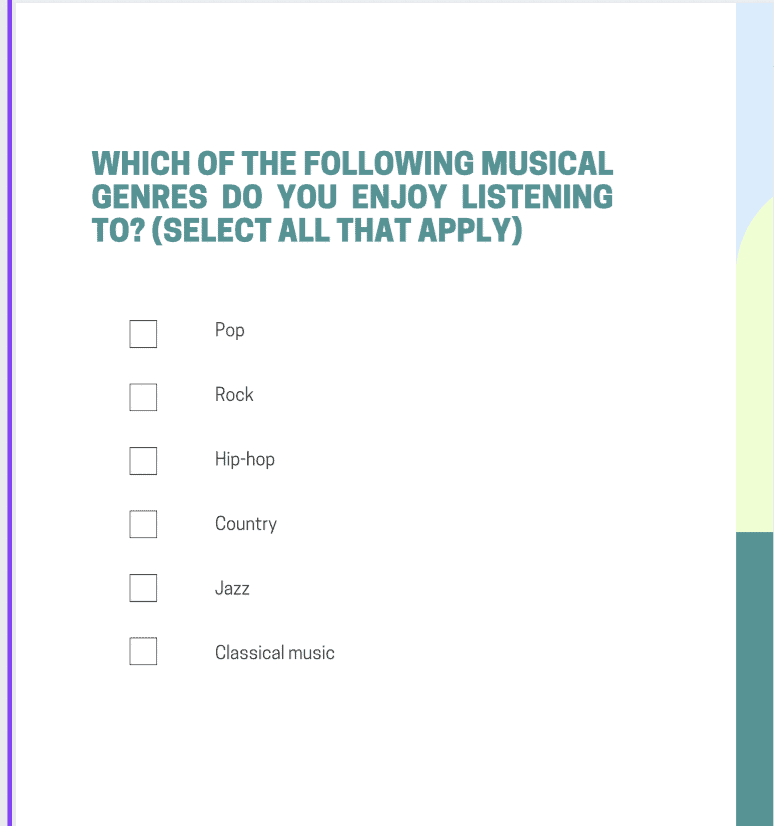
#4 - Likert scale
The most popular format of the Rating scale is the Likert scale question. Researchers conducted a survey with Likert scale questions to rate their level of agreement or disagreement with a statement, measuring either positive or negative responses to a statement. The typical format of a Likert scale question is a five-point or seven-point scale.
Example:
- I am satisfied with the customer service I received. (options: strongly agree, agree, neutral, disagree, strongly disagree)
- I am likely to recommend our product to a friend. (options: strongly agree, agree, neutral, disagree, strongly disagree)
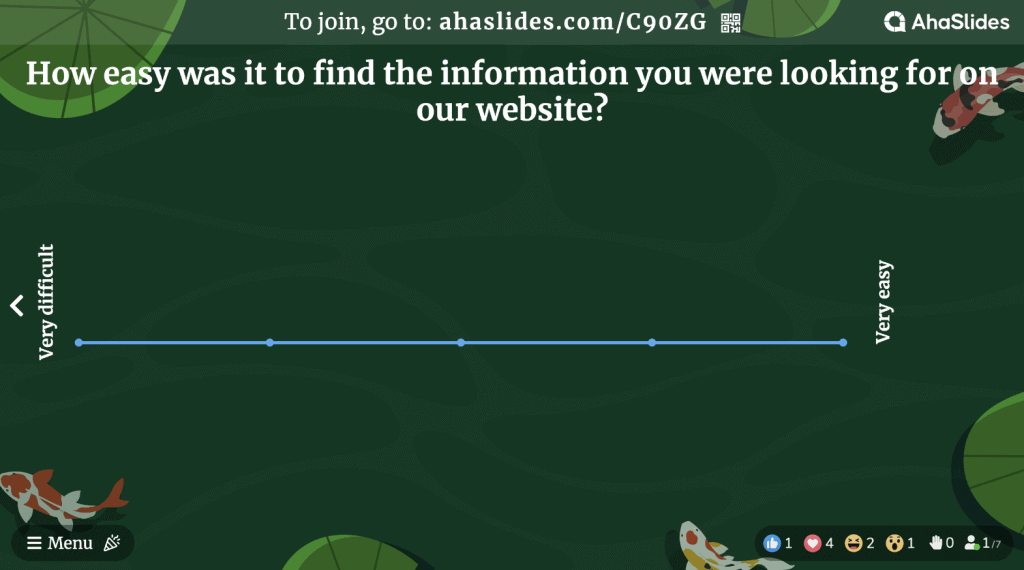
#5 - Numerical Rating Scale
Another type of Rating scale is the Numerical Rating scale, where respondents are asked to rate a product or service using a numerical scale. The scale can be either a point scale or a visual analog scale.
Example:
- On a scale of 1 to 5, how satisfied are you with your recent shopping experience at our store?1 - Very dissatisfied 2 - Somewhat dissatisfied 3 - Neutral 4 - Somewhat satisfied 5 - Very satisfied
- Please rate our customer service on a scale of 1 to 10, with 1 being poor and 10 being excellent.
#6 - Semantic differential questions
When the researcher attempts to ask respondents to rate something on a scale of opposing adjectives, it is the semantic differential question. These questions are useful for collecting data on brand personality, product attributes, or customer perceptions. Examples of semantic differential questions include:
- Our product is: (options: expensive - affordable, complex - simple, high quality - low quality)
- Our customer service is: (options: friendly - unfriendly, helpful - unhelpful, responsive - unresponsive)
- Our website is: (options: modern - outdated, easy to use - difficult to use, informative - uninformative)
#7 - Ranking questions
Ranking questions are also commonly used in research, where respondents must rank a list of answer options in order of preference or importance.
This type of question is commonly used in market research, social research, and customer satisfaction surveys. Ranking questions are useful for obtaining information about the relative importance of different factors or attributes, such as product features, customer service, or price.
Examples:
- Please rank the following features of our product in order of importance: Price, Quality, Durability, Ease of Use.
- Please rank the following factors in order of importance when choosing a restaurant: Food Quality, Service Quality, Ambience, and Price.
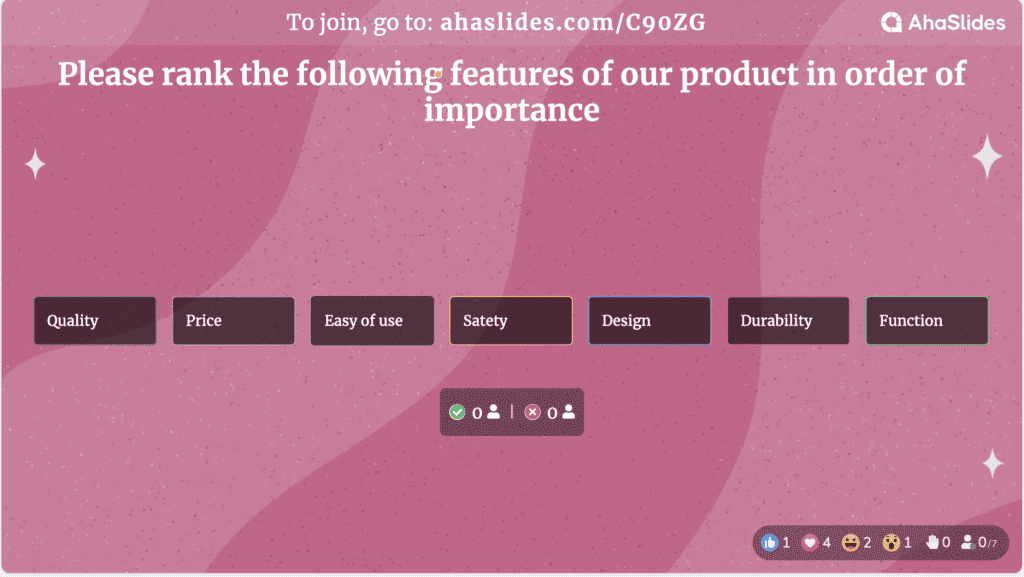
More Close ended questions examples
If you need a sample of closed-ended questionnaires, you can refer to the following examples of closed-ended questions in different categories. In addition to the examples previously mentioned, we offer more closed-ended survey question examples in the context of marketing, social, workplace, and more.
Close ended questions examples in Marketing research
Customer satisfaction
- How satisfied are you with your recent purchase? 1 - Very dissatisfied 2 - Somewhat dissatisfied 3 - Neutral 4 - Somewhat satisfied 5 - Very satisfied
- How likely are you to purchase from us again in the future? 1 - Not at all likely 2 - Somewhat unlikely 3 - Neutral 4 - Somewhat likely 5 - Extremely likely
Website Usability
- How easy was it to find the information you were looking for on our website? 1 - Very difficult 2 - Somewhat difficult 3 - Neutral 4 - Somewhat easy 5 - Very easy
- How satisfied are you with the overall design and layout of our website? 1 - Very dissatisfied 2 - Somewhat dissatisfied 3 - Neutral 4 - Somewhat satisfied 5 - Very satisfied
Purchase Behavior:
- How frequently do you buy our product? 1 - Never 2 - Rarely 3 - Occasionally 4 - Often 5 - Always
- How likely are you to recommend our product to a friend? 1 - Very unlikely 2 - Unlikely 3 - Neutral 4 - Likely 5 - Very likely
Brand Perception:
- How familiar are you with our brand? 1 - Not at all familiar 2 - Slightly familiar 3 - Moderately familiar 4 - Very familiar 5 - Extremely familiar
- On a scale of 1 to 5, how trustworthy do you perceive our brand to be? 1 - Not at all trustworthy 2 - Slightly trustworthy 3 - Moderately trustworthy 4 - Very trustworthy 5 - Extremely trustworthy
Advertising Effectiveness:
- Did our advertisement influence your decision to buy our product? 1 - Yes 2 - No
- On a scale of 1 to 5, how appealing did you find our advertisement? 1 - Not at all appealing 2 - Slightly appealing 3 - Moderately appealing 4 - Very appealing 5 - Extremely appealing
Close ended questions examples in leisure and entertainment
Travel
- Which type of vacation do you prefer? 1 - Beach 2 - City 3 - Adventure 4 - Relaxation
- How often do you travel for leisure? 1 - Once a year or less 2 - 2-3 times a year 3 - 4-5 times a year 4 - More than 5 times a year
Food
- What is your favorite type of cuisine? 1 - Italian 2 - Mexican 3 - Chinese 4 - Indian 5 - Other
- How often do you eat out at restaurants? 1 - Once a week or less 2 - 2-3 times a week 3 - 4-5 times a week 4 - More than 5 times a week
Entertainment
- What is your favorite type of movie? 1 - Action 2 - Comedy 3 - Drama 4 - Romance 5 - Science fiction
- How often do you watch TV or streaming services? 1 - Less than an hour a day 2 - 1-2 hours a day 3 - 3-4 hours a day 4 - More than 4 hours a day
Venue Management
- How many guests do you expect to attend the event? 1 - Less than 50 2 - 50-100 3 - 100-200 4 - More than 200
- Would you like to rent audiovisual equipment for the event? 1 - Yes 2 - No
Event Feedback:
- How likely are you to attend a similar event in the future? 1 - Not at all likely 2 - Somewhat unlikely 3 - Neutral 4 - Somewhat likely 5 - Extremely likely
- On a scale of 1 to 5, how satisfied were you with the event's organization? 1 - Very dissatisfied 2 - Somewhat dissatisfied 3 - Neutral 4 - Somewhat satisfied 5 - Very satisfied
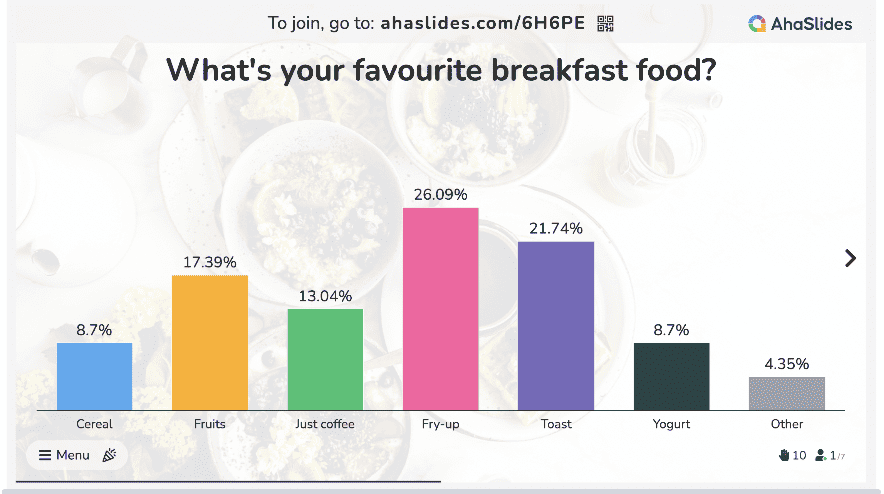
Close ended questions examples in job related context
Employee Engagement
- On a scale of 1 to 5, how well does your manager communicate with you? 1 - Not at all well 2 - Somewhat poorly 3 - Neutral 4 - Somewhat well 5 - Extremely well
- How satisfied are you with the training and development opportunities provided by your employer? 1 - Very dissatisfied 2 - Somewhat dissatisfied 3 - Neutral 4 - Somewhat satisfied 5 - Very satisfied
Job Interview
- What is your current level of education? 1 - High school diploma or equivalent 2 - Associate's degree 3 - Bachelor's degree 4 - Master's degree or higher
- Have you worked in a similar role before? 1 - Yes 2 - No
- Are you available to start immediately? 1 - Yes 2 - No
Employee Feedback
- Do you feel you receive sufficient feedback on your work performance? 1 - Yes 2 - No
- Do you feel you have opportunities for career growth within the company? 1 - Yes 2 - No
Performance Review:
- Have you met the goals that were set for you this quarter? 1 - Yes 2 - No
- Have you taken any steps to improve your performance since your last review? 1 - Yes 2 - No
Close ended questions examples in social research
- How often do you volunteer for community service activities? A. Never B. Rarely C. Sometimes D. Often E. Always
- How strongly do you agree or disagree with the following statement: "The government should increase funding for public education." A. Strongly agree B. Agree C. Neutral D. Disagree E. Strongly disagree
- Have you experienced discrimination based on your race or ethnicity in the past year? A. Yes B. No
- How many hours per week do you typically spend on social media? A. 0-1 hour B. 1-5 hours C. 5-10 hours D. More than 10 hours
- Is it fair for companies to pay their workers low wages and provide minimal benefits? A. Fair B. Unfair
- Do you believe that the criminal justice system treats all individuals equally, regardless of race or socioeconomic status? A. Fair B. Unfair
Key Takeaways
When designing a survey and questionnaire, besides selecting the question type, remember that the question should be written in clear and concise language and arranged in a logical structure so that respondents can easily understand and follow, leading to better results for later analysis.
Frequently Asked Questions
What are 3 examples of closed-ended questions?
Examples of closed-ended questions are:
- Which of the following is the capital of France? (Paris, London, Rome, Berlin)
- Did the stock market close higher today?
- Do you like him?
Ref: Indeed

